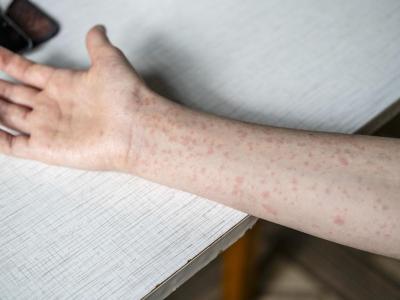Mar 10, 2011 (CIDRAP News) – An external committee reviewing the World Health Organization's (WHO's) performance during the H1N1 pandemic released a preview of its findings today, which defends the WHO against criticism that it overstated the pandemic threat and recommends that it take several steps to improve future response.
Dr Harvey Fineberg, the group's chairman, said in a letter that accompanied the report that reviewers were issuing an early look so that the public would have access to it in advance of its fourth and final meeting on Mar 28 in Geneva, which will include a comment period. Fineberg is president of the Institute of Medicine of the US National Academy of Sciences.
In the letter, he said the committee is especially eager to hear the public's views on its 15 recommendations and how they can be accomplished. After the meeting, the group will meet in a closed session to consider the input from its member states, the United Nations, and other organizations before presenting a final report to the World Health Assembly in May.
The pandemic review committee is simultaneously reviewing how the International Health Regulations (IHRs) functioned during their first use in an international health emergency.
Since the group began its meetings in April 2010, it has heard from a wide range of health and industry experts, along with some of the WHO's toughest critics, who have charged that the WHO's response was disproportionate to the threat and that it had vaccine industry conflicts of interest. The group's last public meeting was in September 2010, but it has held closed-door deliberations since then.
In the report's introduction, the review group urged political leaders and policy makers to keep in mind how core public health values—preventing disease and avoidable deaths—shape public health responses.
In its main conclusions, the review group said that the IHRs help better prepare the world to face a public health emergency, but a lack of capacity in some nations and localities threaten the regulations' full operation and timely implementation. A recent survey of member states' progress toward IHR implementation showed that only 58% of the 128 respondents had developed national plans to meet core IHR requirements and that only 10% had fully established capacities spelled out by the regulations.
Group members said the WHO performed well in many ways, despite facing some systemic problems and demonstrating some shortcomings. "The committee found no evidence of malfeasance," they wrote. While commending the WHO and its partners for actions such as rapidly deploying field expertise and guidance and quickly acting on vaccine-related issues, they also said the WHO had a hard time characterizing the severity of the pandemic and dispelling confusion about the pandemic definition.
Some groups have criticized the WHO for keeping the names of its emergency committee confidential. The review group said it understood the need to protect experts from external pressures, but said the approach fueled conflict-of-interest suspicions and said that the practice wasn't well suited to a group that was needed over many months.
Failure of the WHO to acknowledge criticisms, such as inconsistent pandemic descriptions and timely disclosure of possible conflicts of interests, may have contributed to suspicions and confusion raised by some critics. At the same time the reviewers said the WHO could have done more to vigorously defend itself from unwarranted criticisms.
The review group rejected critics' claims that the WHO rushed to announce the move to pandemic phase 6 as a means of benefiting vaccine manufacturers. "As far as the review committee can determine, no critic of WHO has produced any direct evidence of commercial influence on decision-making," they wrote, adding that the committee found no evidence of attempted or actual influence by commercial interests on the WHO's decision making.
The world is still unprepared to respond to a severe pandemic or other sustained public health threat, the group said. It added that, besides the capacities called for in the IHR, preparedness can be improved through research, strengthening health-delivery systems, and improving economic and health conditions in low- and middle-income countries.
Today's report includes 15 specific recommendations, 4 of which relate to the IHRs. The ones specifically relating to the WHO's pandemic response suggest that the WHO improve its methods for appointing an emergency committee and tackle the difficult task of defining terms to describe severity. For example, the group said severity could be assessed using indicators in predetermined data sets, such as hospitalization rates, mortality rates, and impact on vulnerable populations.
In another recommendation, the reviewers suggested that the WHO set up advance agreements for vaccine distribution and delivery to ease the flow of pandemic vaccine to developing countries. In spite of the IHRs and WHO's success at mobilizing global contributions, tens of millions of people are still at risk for death in a severe pandemic, they said.
"Unless this fundamental gap between global need and global capacity is closed, we invite future catastrophe," they wrote.
To help bridge global gaps in public health response, the WHO should establish an extensive public health reserve corps and consider establishing a contingency fund of at lease $100 million, the committee maintained, with contributions from member states, partners, and other donors, to deploy during large-scale health emergencies.
Committee members urged the WHO and member states to finish reaching an agreement on virus sharing and access to vaccines, which it said will help the world better prepare for the next pandemic.
Their final recommendation is for the WHO to pursue a comprehensive influenza research program, covering everything from surveillance technology to the development of universal and more effective flu vaccines. "Despite everything that was done in the pandemic, the major determinant of the consequences was the virus that cause it," they wrote.
See also:
Mar 10 WHO pandemic review preview report
Mar 10 letter from external review committee chairman
Sep 29, 2010, CIDRAP News story "WHO pandemic review group concludes third session"



















